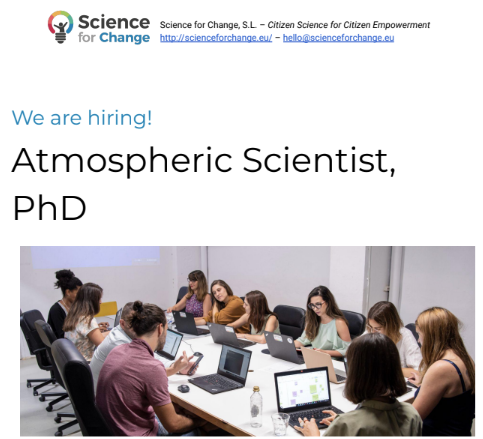The sediment of alluvial riverbeds plays a significant role in river systems on a broad framework of fields: flood control, lotic system, river restoration activities or hydropower production. However, the sediment composition can show great spatial and temporal heterogeneity, even at river reach scale, making it difficult to take representative samples. Historically, sediment datasets have been acquired in specific locations of the river by costly and time-consuming field surveys. This sediment information acquired tends to be punctual, pertaining to a particular river section and it thus have to be generalized or extrapolated to characterize a whole river reach. This lumped measure of the sediment data limit the analysis of the resulting sediment fluxes and geomorphological patterns in alluvial channels. To help in monitoring rivers, the use of Unmanned Aerial Vehicles (UAVs) is becoming a powerful tool since these acquisition techniques allow to cover the study of large areas in a limited amount of time, and it provides high resolution imagery. The proposed project aims to develop field campaigns with drones that allow to further analyze the acquired images by means of deep learning algorithms. Boundaries of the river network, erosion/deposition rates and sediment texture will be thus identified and analyzed.
Responsibilities
- Field measurements (UAVs flights and sampling field campaigns)
- Deep learning and statistical data analysis
- Active member of our scientific team and doctoral student group
- Conference talks
- Write scientific publications
The project is funded by the European Research Council for a duration of four years. The start is planned for first semester of 2023. The salary is fixed according to the established salary level for doctoral students.
We are looking for an enthusiastic and independent person with a passion for science. Candidates for this position should hold (or be in the process of obtaining) a MSc degree in environmental engineering, environmental science (geography, geology), physics, computer science or similar. The person likes to work with the computer and in the field, where creative, practical solutions are needed. Ideally, candidates demonstrate knowledge or high motivation to learn programming (e.g. R or Python software), statistical analysis; and deep learning algorithms. Good knowledge of written and spoken English is required, skills in Spanish are an asset.
The position is based at CSIC in Instituto Pirenaico de Ecología (IPE-CSIC). The research centre is located within the Zaragoza metropolitan area. Zaragoza is an enjoyable city in terms of science, culture and quality of life.
Applications should include a concise statement (max. 2 pages) describing your motivation to carry out a PhD project on this topic, curriculum vitae, copies of your academic records and contact information for two references.
The deadline for applications is 28 February 2023 or until the position is filled.
For further information, please contact: Dr. Carmelo Juez (carmelo.juez@ipe.csic.es)
Interested candidates should apply by emailing the required documents to Dr. Carmelo Juez
(carmelo.juez@ipe.csic.es)
Flow regime has long been recognized as a key driver in the alteration of rivers. However, over the last years there is increasing recognition on the fact that river forms and river processes are broader impact by sediment regime. The term sediment regime refers to the sediment budget (amount, type and timing of sediment inputs, transport, storage and outputs) of a river system as well as the way water and sediment interact to drive river conditions. The sediment regime disturbance is mainly caused by climatic fluctuations (precipitation and evapotranspiration rates, extreme rain events, droughts) and by land cover changes in the river catchment due to human activities. Furthermore, sediment regime is inherently stochastic and commonly used deterministic (and thus partial) approaches are constrained to local and site specific sediment regime problems. The proposed project aims to develop a probabilistic model rooted on machine learning basis. The proposed framework will analyze detailed information about the physical characteristics of the river catchment, streamflow, sediment data and climatic forces.
Responsibilities
- Datasets homogenization and curation
- Implementation and validation of machine learning algorithms
- Statistical data analysis
- Active member of our scientific team and doctoral student group
- Conference talks
- Write scientific publications
The project is funded by the European Research Council for a duration of four years. The start is planned for first (desirable) or second semester of 2023. The salary is fixed according to the established salary level for doctoral students.
We are looking for an enthusiastic and independent person with a passion for science. Candidates for this position should hold (or be in the process of obtaining) a MSc degree in environmental engineering, environmental science (geography, geology), physics, computer science or similar. The person likes to work with the computer, equations and new data-driven technologies, where
thoughtful solutions are needed. Ideally, candidates demonstrate knowledge or high motivation to learn programming (e.g. R or Python software), statistical analysis; and machine learning algorithms. Good knowledge of written and spoken English is required, skills in Spanish are an asset. The position is based at CSIC in Instituto Pirenaico de Ecología (IPE-CSIC). The research centre is located within the Zaragoza metropolitan area. Zaragoza is an enjoyable city in terms of science, culture and quality of life.
Applications should include a concise statement (max. 2 pages) describing your motivation to carry
out a PhD project on this topic, curriculum vitae, copies of your academic records and contact
information for two references.
The deadline for applications is 28 February 2023 or until the position is filled.
For further information, please contact: Dr. Carmelo Juez (carmelo.juez@ipe.csic.es) Interested candidates should apply by emailing the required documents to Dr. Carmelo Juez (carmelo.juez@ipe.csic.es)
Flow and sediment regime at headwater streams is dependent on physical variables susceptible to Global Change, i.e. major environmental changes due to climatic fluctuations and land cover changes due to human activities. On one hand, sediment availability and heterogeneity are likely to be affected due to changes in the soil occupation induced by socio-economic adjustment to climatic conditions. For instance, river catchments with snow melt floods may become subject to rainfall floods, with
expected higher discharges due to higher temperatures. On the other hand, it is expected that the sediment supply coming from the catchment to the alluvial channel may be significantly reduced due to land abandonment and natural forest expansion at headwater streams. This in turn may cause an abrupt depletion of the river bed downstream, thus affecting the river morphology and eventually the nearby human settlements. The proposed project aims to assess both climate and land cover impact on the flow and sediment regime at headwater streams. Global future climate and land cover scenarios will be evaluated and downscaled to the catchment scale. The downscaled variables will be combined with historical observed data. This will allow to determine the difference between natural variability of the natural processes and the potential Global Change impact. Percentile-based extremes will be calculated and their trends over the period 1950-2100 will be computed to establish projected changes in precipitation, flow rates, sediment rates and related land cover changes (increase or decrease of shrubs, forests or meadows areas).
Responsibilities
- Datasets homogenization and curation
- Preparation of future climate and land cover scenarios
- Statistical data analysis
- Active member of our scientific team and doctoral student group
- Conference talks
- Write scientific publications
The project is funded by the European Research Council for a duration of four years. The start is
planned for first (desirable) or second semester of 2023. The salary is fixed according to the
established salary level for doctoral students.
We are looking for an enthusiastic and independent person with a passion for science. Candidates for this position should hold (or be in the process of obtaining) a MSc degree in environmental engineering, environmental science (geography, geology), physics, computer science or similar. The person likes to work with the computer and new data-driven technologies, where thoughtful solutions are needed. Ideally, candidates demonstrate knowledge or high motivation to learn programming (e.g. R or Python software); and statistical analysis. Good knowledge of written and spoken English is required, skills in Spanish are an asset.
The position is based at CSIC in Instituto Pirenaico de Ecología (IPE-CSIC). The research centre is located within the Zaragoza metropolitan area. Zaragoza is an enjoyable city in terms of science, culture and quality of life.
Applications should include a concise statement (max. 2 pages) describing your motivation to carry out a PhD project on this topic, curriculum vitae, copies of your academic records and contact information for two references.
The deadline for applications is 28 February 2023 or until the position is filled.
For further information, please contact: Dr. Carmelo Juez (carmelo.juez@ipe.csic.es).
Interested candidates should apply by emailing the required documents to Dr. Carmelo Juez
(carmelo.juez@ipe.csic.es)
In a Global Changing world flow and sediment regime are dominant actors in the modification of river catchments. The sediment regime refers to the sediment budget (amount, type and timing of sediment inputs, outputs and storage) of a river system as well as the way water and sediment interact to drive river conditions. Studies of flow and sediment regime assessing the impact of Global Change are scarce and traditionally rely on deterministic approaches. However, at any given river catchment section, a complex imprint in the spatial-temporal distribution of flow and sediment regime is observed. This project aims to model flow and sediment regime by means of machine/deep learning algorithms based on historical data and new data acquired through field campaigns.
Responsibilities
- Datasets homogenization and curation
- Implementation and validation of machine and/or deep learning algorithms
- Statistical data analysis
- Active member of our scientific team
- Conference talks
- Write scientific publications
The project is funded by the European Research Council for a duration of three years. The start is planned for first or second semester of 2023. The salary is fixed according to the established salary level for postdoctoral personnel.
We are looking for a Ph.D. in Computer Science, Data Science, Machine Learning, Artificial Intelligence, Earth Science, Environmental Science, Environmental Engineering, Civil Engineering, Geography, Water Resources Engineering, Fluvial Geomorphology, or a related physical science field. The desired skills of a potential candidate should include expertise in machine/deep learning techniques and computer programming (e.g., R, Matlab, Python). Furthermore, successful candidate
must have experience in collaborating within inter- and transdisciplinary teams and developing and applying inter- and transdisciplinary concepts, methods and tools. We expect good integrative skills, and high social and emotional intelligence. Fluency in English (spoken and written) is required, skills in Spanish are an asset.
The position is based at CSIC in Instituto Pirenaico de Ecología (IPE-CSIC). The research centre is located within the Zaragoza metropolitan area. Zaragoza is an enjoyable city in terms of science, culture and quality of life.
Applications should include a motivation letter and CV (including grades, diploma, publication list and two references) in electronic form as one single PDF.
The deadline for applications is 28 February 2023 or until the position is filled.
For further information, please contact: Dr. Carmelo Juez (carmelo.juez@ipe.csic.es)
Interested candidates should apply by emailing the required documents to Dr. Carmelo Juez
(carmelo.juez@ipe.csic.es)


